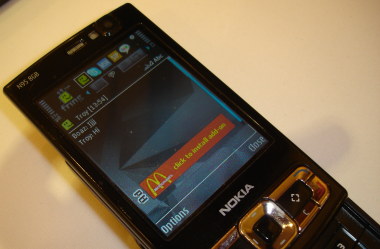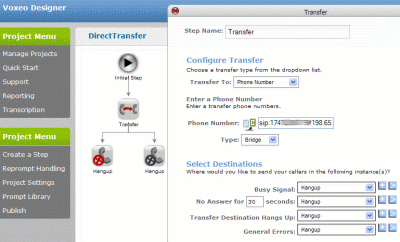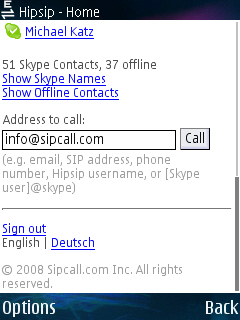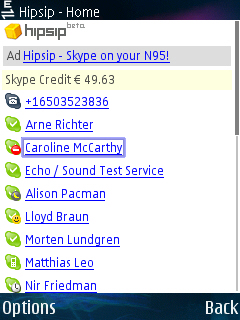Many people were wondering during the last two years how the Israeli
mobile VoIP company Fringland Ltd. wants to make any money. Their versatile software works on virtually every platform and supports more than 1.000 mobile handsets. I heard that 200.000 new users sign up every month to
Fring, as well as 80 companies which want to become a SIP affiliate. More than 500 SIP companies are already using the Israeli software as an easy to deploy solution for mobile
VoIP, by sending a preconfigured Fring to their users' handsets or telling their customers how to use it. Fring invested heavily in software development and has to channel the other 500 companies' traffic over its own servers. Every voice connection goes first from the cellphone to Fring's servers, no matter if it's on
Skype,
SIP or
Google Talk. Fring could take its share from the other companies' earnings, but hey do it for free. Also there is no paid version of Fring. All these business ideas are still in the cloud.
So how does Fring want to make money?
The cell phone multi messenger, which also serves perfectly for nearly free
VoIP calls over 3G, should soon be sponsored by advertising. At the
OSiM World conference in Berlin I saw an unreleased software version with banner ads for McDonald's in Fring's chat window. In a former occassion I could already see advertising by Gillette. The Israeli company with
$20 million in venture capital seems to finally care now for revenue streams. Although CEO Avi Shechter had told me in February in an interview at Barcelona's Mobile World Congress that the entire year of 2008 would be dedicated exclusively to software development and revenues would be irrelevant.
"The McDonald's banner ads are just a demonstration", said Fring's cofounder Boaz Zilberman when we met in Berlin. So until now Fring makes no money from advertising but is proving the concept.

Fring with McDonald's banner ad on a Nokia N95 8 GB | Foto: Markus Göbel
One problem is, says Boaz, that mobile advertising is not very common yet. The advertisers still don't understand it and therefore employ only small budgets. But these small budgets would be eaten up immediately on the millions of daily Fring messages. That's why the company is going for bigger clients and advertising networks like Doubleclick or others. Context sensitive advertising like at Google Mail is not on the agenda.
"We would have to read every chat message", says Boaz.
"But we don't want that because it would hurt our users' trust." The business model of another Israeli born company seems creepy:
Pudding Media is even eavesdropping their users' conversations to deliver targeted advertising at the computer screen during the phone calls.
Fring is now developing from a sole software for messaging and VoIP to an universal contact solution, which even keeps track of your buddies' location by GPS. The latest version 3.36.6, which you can only download from
Fring's developer website, has already joined the menus for messengers and social networks. The boundaries between these categories are every time more blurry, because for instance Facebook is also an instant messenger now. In future software versions, every person should appear only once in Fring's contact list. Until now some people appear twofold, threefold or even more times - because they are connected to Skype,
MSN,
ICQ or other services at the same time. One click at the buddy's icon will start a chat, no matter which messenger to other person is using, which can always be escalated into a Fring phone call via VoIP.



